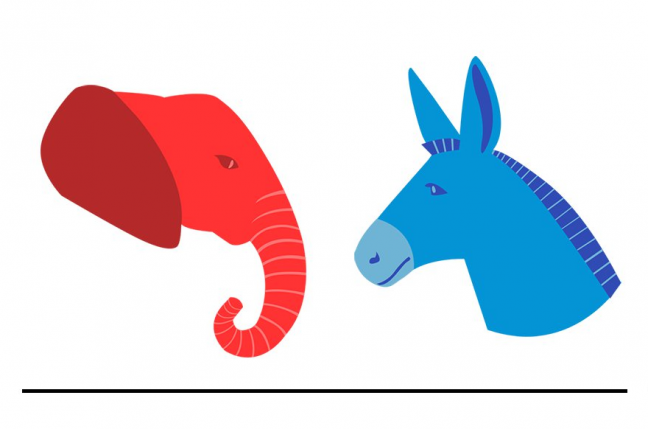Last February, when the Wisconsin State Legislature came together to recognize Black History Month, there was a problem.
The resolution drafted by the Wisconsin Legislative Black Caucus honored Colin Kaepernick, the Milwaukee-born NFL quarterback famous for kneeling during the national anthem in protest of police brutality. In what State Rep. Dave Crowley, D-Milwaukee, called “a slap in the face” to the Caucus, the all-white Republican majority forced the name’s removal.
Earlier this month, as the legislature voted on accommodations for paralyzed State Rep. Jimmy Anderson, D-Fitchburg, provisions for basic dignity were turned into a political battleground. Republican lawmakers, after hearing the lawmaker himself speak movingly on the months of therapy he needed following ulcers that were the result of spending too long in a wheelchair during an overnight session, broke down the rule changes accommodating his disability and mixed them with amendments to benefit themselves politically.
The nation isn’t just on the cusp of the 2020 elections, but also the political awakening of the most diverse generation the country has ever seen.
As voters take to the polls to demand a government that reflects and represents today’s America, the Democratic party believes they deserve better than white lawmakers telling black Americans how to celebrate their history, or able-bodied lawmakers telling disabled Americans what their needs are.
As America’s demographics change, the Democratic Party has changed to reflect them. Over the past two decades, the portion of Democratic registered voters who are black, Hispanic, Asian-American or another non-white race has increased from 24% to 39% in 2019. On the other hand, 83% of Republican registered voters are white.
It is as important, however, that the politicians reflect the country and their voters — it would be pointless to brag about winning diverse votes if the party wasn’t going to elect diverse politicians or celebrate minority leadership. Democrats have pushed the boundaries of America’s traditionally homogenous institutions, and 2018’s historic blue wave swept a truly diverse caucus into office — people of different colors, creeds, and orientations, standing together resolved to strive for progress.
In the entirety of Congress, an overwhelming 90% of racial and ethnic minority members are Democrats — and laudable as the tireless efforts of the activists that made the Democratic Party what it is today are, it’s also unfortunate that in a two-party nation, only one seems committed to looking like the nation it seeks to lead.
Diverse representation does not stop only at elected officials — the Democratic party is putting forward strong plans for benefiting minority communities. On the front of LGBTQ+ rights, May 2019 saw the passage of the Equality Act — a bill amending the Civil Rights Act to protect on the basis of gender identity and sexual orientation.
In addition, in the 2020 Democratic presidential primary, candidates are shining a historic spotlight on disability advocacy.
According to an article in The Hill, the U.S. Census Bureau estimates 20% of Americans have some form of disability. The Democratic Party stands committed to ensuring that these people’s challenges and dignity do not go unnoticed. RespectAbility, a non-partisan advocacy group for disability rights, have praised 15 of the Democratic presidential candidates for including accurate captions on campaign videos for those hard of hearing.
Point Counterpoint: Accountability vital when faced with lawlessness
Candidates have also used sign language at campaign events and vowed to appoint disabled cabinet members — a critical step forward in bringing stakeholders in the political process to the table, not as spectators or simply the subjects of outreach, but as leaders in their own right accorded the respect they’ve always deserved and showing the boldness they’ve always demonstrated.
While the Democratic Party works to be inclusive at both the national level and campus level, it’s important to recognize that more can always be done — and as an organization, College Democrats of UW-Madison stands open to the voices of those seeking to create a more welcoming and diverse organization.
Each year sees fantastic acts of self-advocacy on this campus and around the world by people of all backgrounds, and each new voice demanding justice, each new face unashamed on the political stage, are not things we will turn away from. Democrats know we stand stronger together — and no matter who you are, we’d be overjoyed to have you stand with us.
Ethan Carpenter (emcarpenter2@wisc.edu) is a junior majoring in political science. He is the press secretary for the College Democrats of UW-Madison.
Read about the College Republicans’ party coalitions here.


